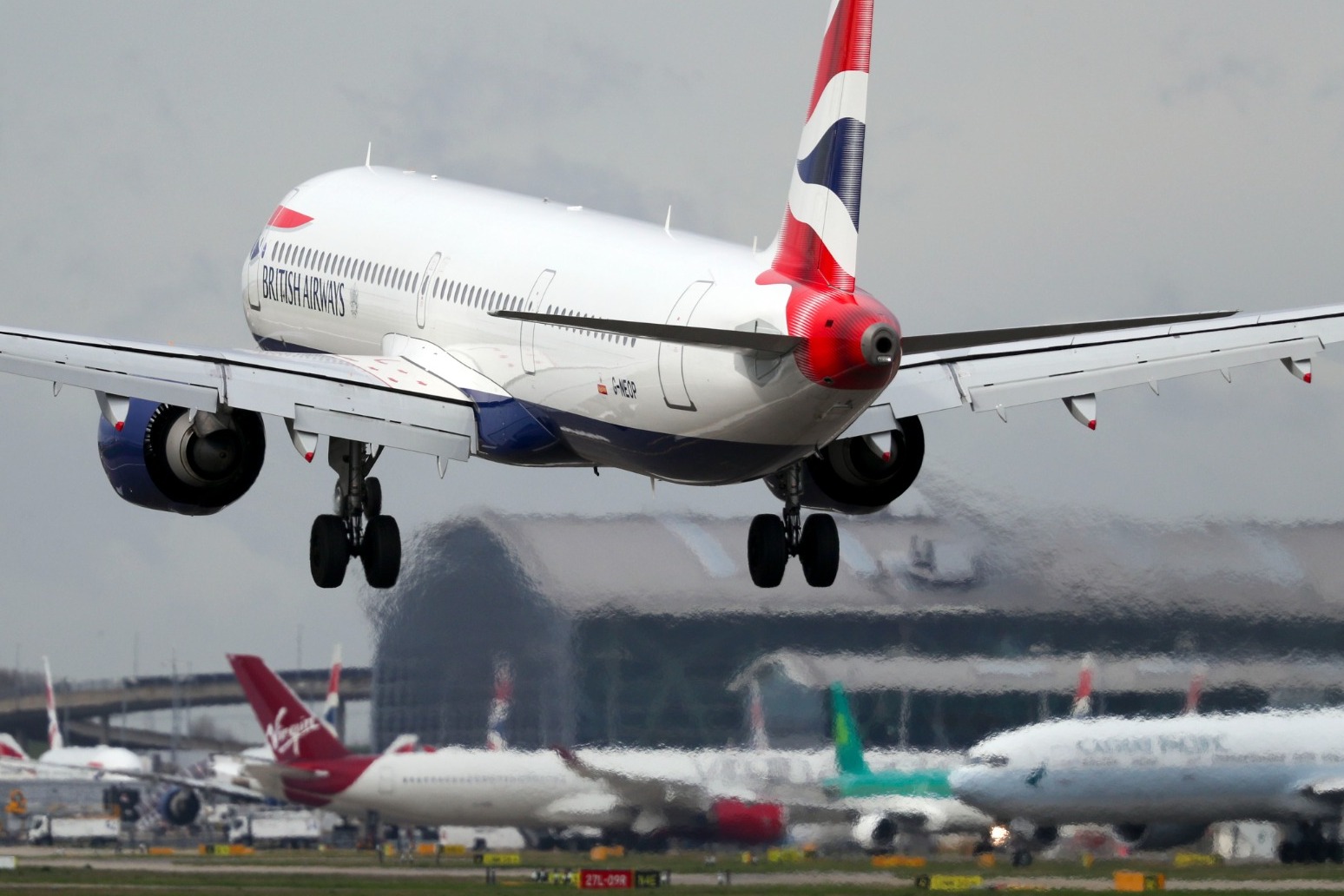
Ministers should develop proposals like a frequent flyer tax to reduce the demand for air travel.
That’s if other measures aimed at cutting aviation emissions fall short of expectations.
Under Government plans, emissions will be reduced significantly each year by technological measures, like increasing fuel efficiency and the adoption of sustainable aviation fuels.
The first review of how the Jet Zero Strategy is working to cut emissions is expected to take place in 2027.
However, the Environmental Audit Committee (EAC) has urged the Government to bring forward this review to 2025 to determine whether the sector remains on track to meet a 2050 net zero target.
The group of MPs are also calling on ministers to prepare for the review’s outcome, in case it finds that the technological measures alone will not deliver the reductions predicted.
“In preparation for the outcome of that review, we recommend that the Government develop policy proposals on demand reduction, including consideration of greater use of digital technologies, reducing the cost of rail travel, and a frequent flyer levy, should these then be required,” the EAC said.
It comes as part of the committee’s wider call for ministers to hold the industry accountable for proposed emissions reductions, as it published the Government’s response to its report on net zero aviation.
In the report, the EAC says ministers should rigorously monitor the industry’s progress and reassess its approach if system efficiencies alone fail to meet the 2050 net zero trajectory.
The Government confirmed its model assumes that fuel efficiencies will improve by 2% each year, in line with evidence from the aviation sector.
But it says it will keep these assumptions under review and consider whether further action is needed in future to meet net zero targets.
Elsewhere, the committee welcomed the Government’s decision to include international aviation emissions in the UK’s “carbon budget” for the period 2033-2037.
The five-yearly budgets provide ministers with advice on how much greenhouse gas emissions Britain can emit to stay on track with the 2050 target.
However, the Government has yet to make this change legally binding, with the EAC recommending it bring forward the legislation “without further delay”.
The Government said it will do so “at the earliest opportunity, subject to Parliamentary scheduling” although it does not commit to doing so by a specific date.
Elsewhere, ministers agreed with the committee’s recommendation to commission research into aviation’s non-CO2 emissions, pointing to a multi-year programme aimed at improving the Government’s understanding of how other greenhouse gas emissions interact over time.
Understanding the climate impact of hydrogen-powered aircraft will be a key focus of the programme, the Government said.
EAC member Jerome Mayhew, said: “Decarbonising the aviation industry has proved difficult, but it is a critical part of the UK’s pathway to net zero.
“There is considerable energy and ambition within the aviation sector to deliver the necessary reductions in emissions.
“I welcome this ambition but the Government needs to make sure that ambition is translated into actual results.
“If a future review of the Jet Zero Strategy, which the Committee recommended takes place by 2025, reveals that sufficient progress is not being made, the Government must not be afraid to alter course mid-flight to maintain progress towards our net zero goals.”
A Government spokesperson said: “Reducing demand for flights is not Government policy, with our Jet Zero Strategy setting out an ambitious approach to achieving net zero aviation by 2050 without the Government needing to limit aviation growth.
“We continue to work with the aviation sector to reduce its environmental impact, including by exploring and encouraging the use of alternative fuels.”
Published: by Radio NewsHub









